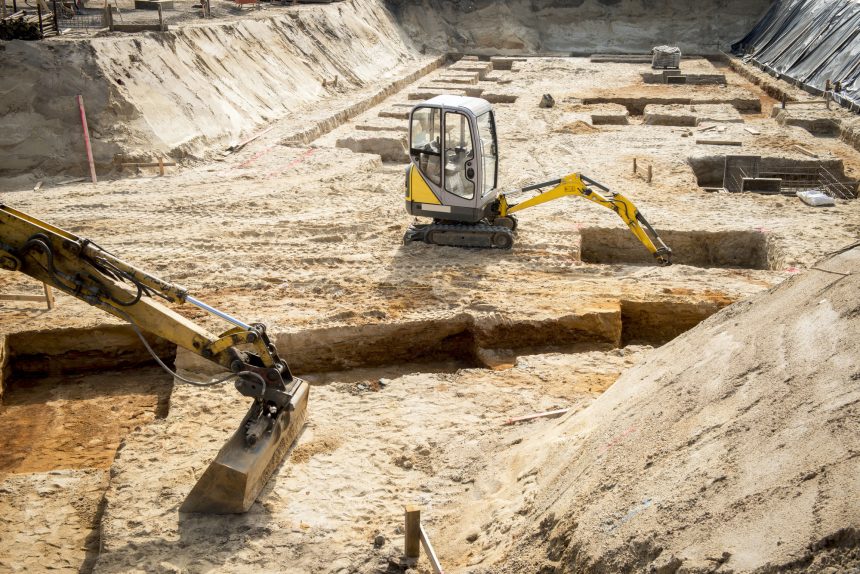Want to save over 35% of the cost of digging a trench for utility installations? A trencher can cut that much cost compared to the cost of using an excavator.
A trencher offers many practical reasons to use it. Let’s take a look at some of the reasons for both commercial and residential use.
Types of Trenchers
Trenchers can be used in a variety of applications. They are beneficial for homeowners, as well as those who do commercial work, such as utility company personnel. The type of trencher you need will depend on the uses of it.
Walk behind trenchers are also known as portable trenchers. A walk behind trencher lets you dig trenches in narrow spaces. These are a great option for digging trenches in smaller landscapes, such as residences and small businesses.
Ride-on trenchers are larger in size and let you make deeper trenches and give you higher performance. There are a few options within this type of trencher.
Wheel trenchers have a toothed metal wheel. They can be used in both hard or soft soils and are great for areas with a lot of rock formations. Sometimes they are also known as rockwheels.
These trenchers are more heavy-duty and can cut through pavement to allow access under roads. In addition, they move material away from the trench’s edge. Wheel trenchers are commonly used by utility companies.
Chain trenchers have a chainsaw-like digging belt that they use to cut into the ground. The belt wraps around a boom, allowing you to adjust the depth. The bucket excavator can also make it easier to cut hard soil. Utility companies often use chain trenchers to cut deep, narrow trenches.
Benefits of Using It
Using a trencher is usually a cost-efficient method of excavating a trench. Larger trenchers can be used in place of several smaller Hyundai excavators, increasing productivity, and reducing the cost to run the equipment.
Fewer equipment needs can ultimately save money. If your company frequently uses excavators, you can use them less and, thus, spend less in purchasing and maintaining a fleet of expensive tools.
Trenchers also save money when it comes to labor. Since trenchers are more efficient in the work they do, they require fewer people to run them. Labor costs can then drop as you can reroute manpower to other projects.
Trenchers create a vertical wall trench as opposed to a v-shaped wall that is formed by an excavator. This shape of the wall is easier and less expensive to backfill. Plus, you can get better compaction of the material, reducing the risk of erosion or surface collapse.
Cutting Pavement
Wheel trenchers are able to cut through rock, concrete, and pavement. This opens a wider range of projects that trenchers are able to work on. It also makes them helpful for rural, suburban, and even urban landscaping jobs.
These types of tools are perfect to use in difficult ground, while still creating clean, straight trenchers. Wheel trenchers can also be used on patch and joint replacement projects for highways and streets.
Electrical Wiring
Utilizing trenchers can simplify jobs that require electrical wiring underground. Some of these applications are exclusive to larger, more industrial jobs but others can help just about any interested homeowner.
Sometimes a utility company or contractor needs to dig underground for electrical or telecommunication wires. You can use a chain trencher to dig all the way from the power pole to the residence. You can also cut a trench to place refurbished transmitters in the ground.
For the homeowner, a portable trencher can make it easy to install underground wiring. You can create trenches for landscape wiring or electric dog fence wiring. Save time by using the trencher and use it to better secure the wires underground.
Drainage
Trenchers of all types can dig up a relatively large amount of soil at one time. This can save you time and money on a variety of projects but is particularly useful when it comes to drainage. This is because most drainage projects require digging through the ground in a line.
Digging like this can help easily create drainage channels for water or sewage. A trencher can create the channel with little hassle, while digging by hand would be a tiresome and less precise project.
In a similar way, trenchers can play a key role in irrigation projects. You could use a portable trencher to run sprinkler and irrigation piping throughout your landscape.
Home Landscape Maintenance
As a homeowner, you may be wondering what’s it used for? A portable trencher can be used to create a trench that lines the borders of different landscape elements. For example, you might create a border between a mulched garden bed and the rest of your yard.
Imagine having to spend hours using a shovel to create a straight, good-looking trench. Your back would end up aching. A trencher can get the same thing done with much less time and effort.
You could also use a portable trencher to snip the roots of difficult plants. Trenchers have blades similar to a rotary lawnmower blade. This can help clear out aspects of vegetation in a relatively simple process.
Caution should be used when using a trencher to cut roots. Be careful when exposing the blade and always cut the roots slowly and carefully.
Start Using a Trencher
A trencher offers a number of benefits, whether you are a homeowner or a commercial operator. They can save you a lot of work, money, and energy while creating a stable, good-looking trench.
If you found this article helpful, be sure to read our other technology articles, too.













